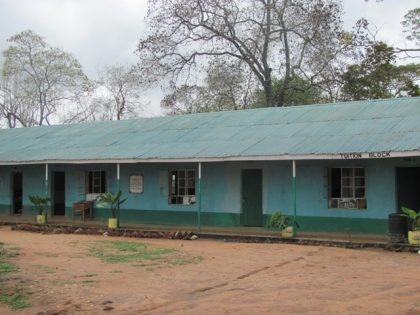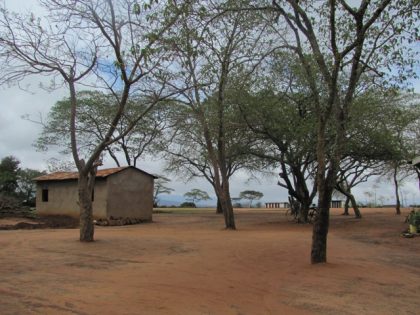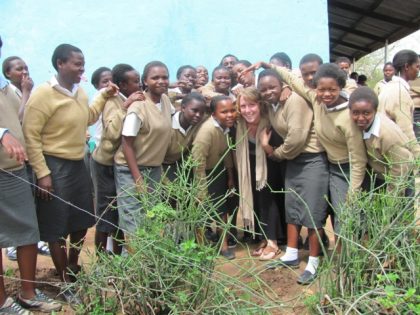 Location
Location
Utithini, Mwala District, Eastern Province, Kenya
Community Description
In Kenya, Ukambani is said to have the most hospitable and peaceful people, and the driest climate. In the Mwala District of the Eastern Province, most people work as subsistence farmers, growing mangoes, papaya, oranges, maize, beans, sweet potatoes, and of course the local staple-nzuu (a brother to the black-eyed pea and very nutritious).
People work their land through extremely dry conditions to send their children to school and to feed their families and livestock. Although people are hard-working and motivated, the community is struggling.
Inability to access resources, especially water, is perpetuating a cycle of poverty. Drought has caused serious famine in the past, and erratic weather patterns threaten the well-being of farms and people.
 Four villages share one public water borehole, which remains crowded and unreliable. Most people have resorted to carrying water from the Thwake River which is a taxing trip for both livestock and people. Also, many parts of the river are contaminated and have been known to run dry.
Four villages share one public water borehole, which remains crowded and unreliable. Most people have resorted to carrying water from the Thwake River which is a taxing trip for both livestock and people. Also, many parts of the river are contaminated and have been known to run dry.
St. Martin Secondary School is a recently established secondary day school with 300 students. The school, which was created to give rural youth an opportunity for education after primary school, has not had access to water since it opened in 2008.
Project Description
This project is to build a rainwater catchment system for the school.
The system will enable the school to capture the rains that fall twice per year, amounting to more than 8,000 liters of fresh water per year.
The system will consist of a 4,000-liter tank, piping, and gutters. The tank will fill quickly from the school’s large tin-roof.
 Seven to ten days before the tank is delivered, a cement base to elevate the tank will be constructed..
Seven to ten days before the tank is delivered, a cement base to elevate the tank will be constructed..
Upon the arrival of the tank and other materials (all of which are being delivered by Akamba Hardware in Machakos), the gutters and piping will be installed and the tap will be fitted and placed near the bottom of the tank.
Construction of the base, fitting of the tap, and installation of gutters and piping will all be completed by family members of the students, many of whom have experience installing this type of system.
The school principal and vice principal will be available for supervision. Based on past construction of similar systems in the area, the project will be finished in less than three weeks.
Drinking water will be treated with the chemical purifier Waterguard and will be available to students and staff.
Usage of the new water source in projects will begin in the life skills club, starting with the new term. Students will construct inexpensive handwashing stations out of old jerry cans. These stations will be installed outside all latrines on the compound.
The club will also focus on small-scale farming by making “sack gardens” which consist of maize sacks, soil and small rocks. These sacks can grow between 20 and 25 plants of spinach and kale using only 20 liters of water per week. Because the sack gardens will be located just behind the classrooms, kitchen water can be prepared and used to water these vegetables.
Project funds will be used to purchase the tank, gutters, piping, and tap.
The school and community will contribute cement, gutter clips, tap fitting. They will also provide labor for the project.
Project Impact
About 300 students and staff will benefit from this project.
Peace Corps Volunteer Directing Project
Andrea Witherspoon
Comments
This project will eliminate the use of contaminated water, and cut back on the labor required for water retrieval. It involves students, staff, and families in the process, ensuring sustainability.
Dollar Amount of Project
$475.00
Donations Collected to Date
$475.00
Dollar Amount Needed
$0.00 – This project has now been fully funded through the generosity of The Soneva SLOW LIFE Trust as a part of their Clean Water Projects initiative.
We encourage others to continue to donate using the Donate button below, and we will notify Andrea of your donation. Additional funds will be used to fund the next project by the PCV and/or other projects in the country of service.
This project has been finished. To read about the conclusion of the project, CLICK HERE.